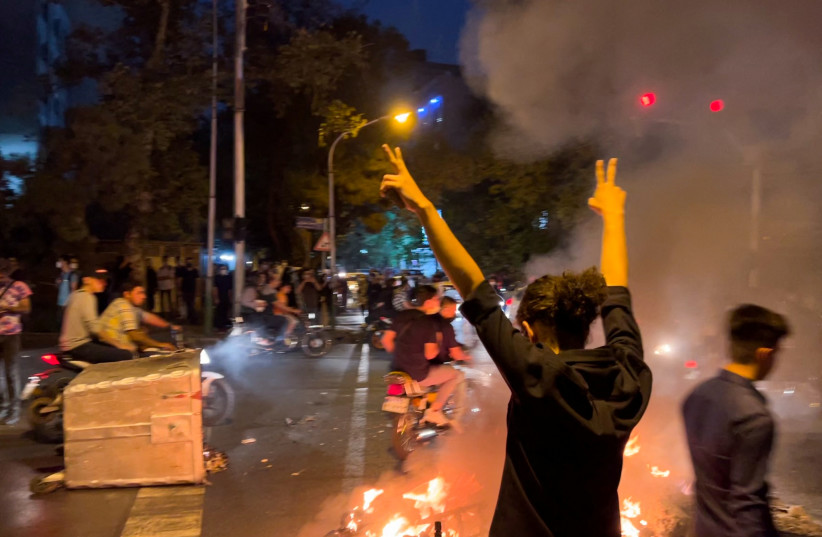Anyone with Internet access is watching the protests erupting in Iran over the murder of 22-year-old Mahsa Amini. Iran’s morality police apprehended Mahsa for improperly wearing her hijab and took her to a re-education center. Police claimed that Mahsa had a heart attack, fell on the floor and died after two days in a coma. However, eyewitnesses detained with Mahsa revealed that officials severely beat her to death.
Mahsa is not the first woman to die at the hands of the Iranian regime; unfortunately, she won’t be the last.
Her murder has led to nationwide demonstrations throughout Iran and the regime’s security forces have used excessive force against protesters, killing over 75 people and detaining hundreds, including journalists. The actual death toll is probably higher than the Iranian government has admitted.
The West must support the Iranian people
Now more than ever, Israel, the United States and every Western democracy are responsible for standing up for the people of Iran. The regime’s restrictions on Internet access have resulted in thousands of Iranians begging Westerners to speak on their behalf.
Iran is not only trying to hide its crimes, and hinder mobilization and access to information but also perfecting its cyber-surveillance systems to identify protesters almost immediately. We have a moral responsibility to stand up for Iranians, especially in Israel, where the Iranian regime plays a significant role in sponsoring the daily terrorism we face.

Not only should we care morally about Iran’s brutal actions against its people, but we must also be concerned about the threat that the regime poses internationally. Iran is the world’s largest state sponsor of terrorism, funding groups like Hezbollah, Palestinian terrorist groups in Gaza and various terrorist groups throughout the Middle East. Tehran has armed, trained, financed, inspired, organized and supported dozens of these organizations.
The regime facilitates, coerces and sponsors Shia fighters from Afghanistan and Pakistan to participate in Assad’s brutal crackdown against his people. In recent years, Iran has supported terrorist plots to attack dissidents in several European countries. The threat Iran poses globally doesn’t only concern the West. Even the Arab world, which doesn’t traditionally side with Western nations, has joined the resistance against Iran.
Iran’s endless war crimes and terror financing should warrant global concern over the Ayatollahs’ nuclear ambitions. We cannot allow a regime that tortures and murders its people, destabilizes the Middle East, and carries out terror attacks against Americans and Europeans to obtain nuclear capabilities.
Why now?
But what is different now? And what will amplifying Iranian voices achieve in the long run? The bravery on the streets of Iran shows how much the people are ready for reform. Iranians are chanting “Death to the Dictator” and tearing down portraits of Ayatollah Ali Khamenei, revealing that they have had enough of living under oppression for 44 years.
Supporting Iranians at this time can influence global policy, especially crucial as Iran’s leadership is under growing pressure to come to an accommodation in talks to revive the stalled 2015 nuclear agreement.
In the past, we have seen how a surge in social media can change the world. It has the power to affect laws and policies, and sheds light on taboo issues. Mohamed Bouazizi’s setting himself on fire in Tunisia paved the way for the Arab Spring, and the murder of George Floyd inspired worldwide protest and highlighted societal racism.
Amplifying Iranian voices can change how global leaders respond to Iran’s tyranny. The regime knows this, which is why it quickly shut down internet access. The regime is so threatened by the power that social media holds that it has tried to kidnap Iranian – American journalist Masih Alinejad, whose reports have reached hundreds of millions of people.
Iran’s censorship is making it harder to document their violence, so it is our job to amplify Iranian voices not just for their safety but for the safety of the world.
The writer is the COO of Social Lite Creative.
